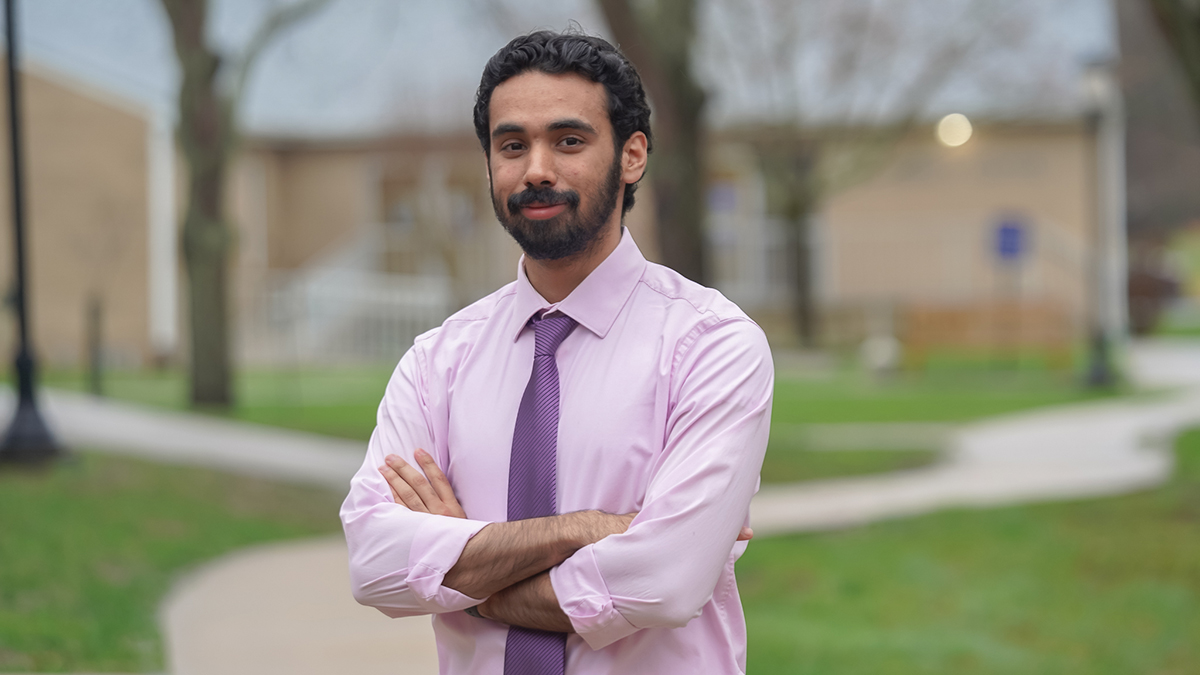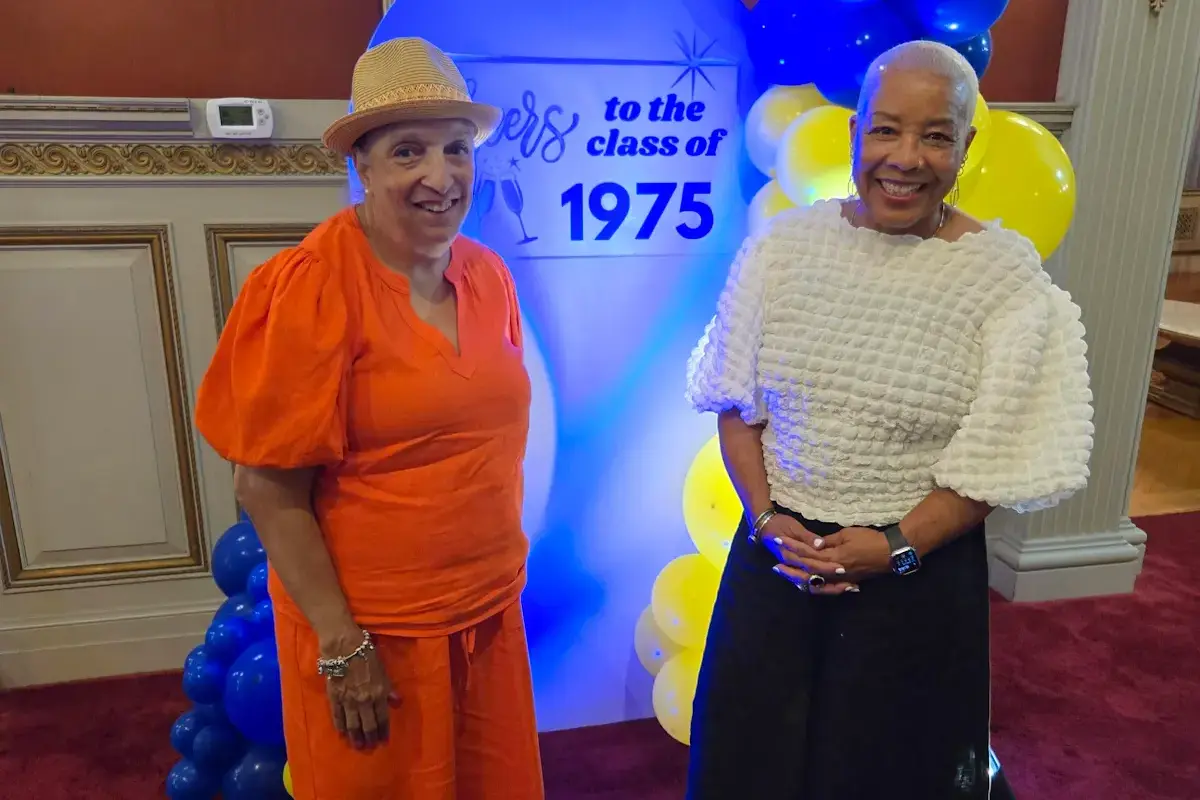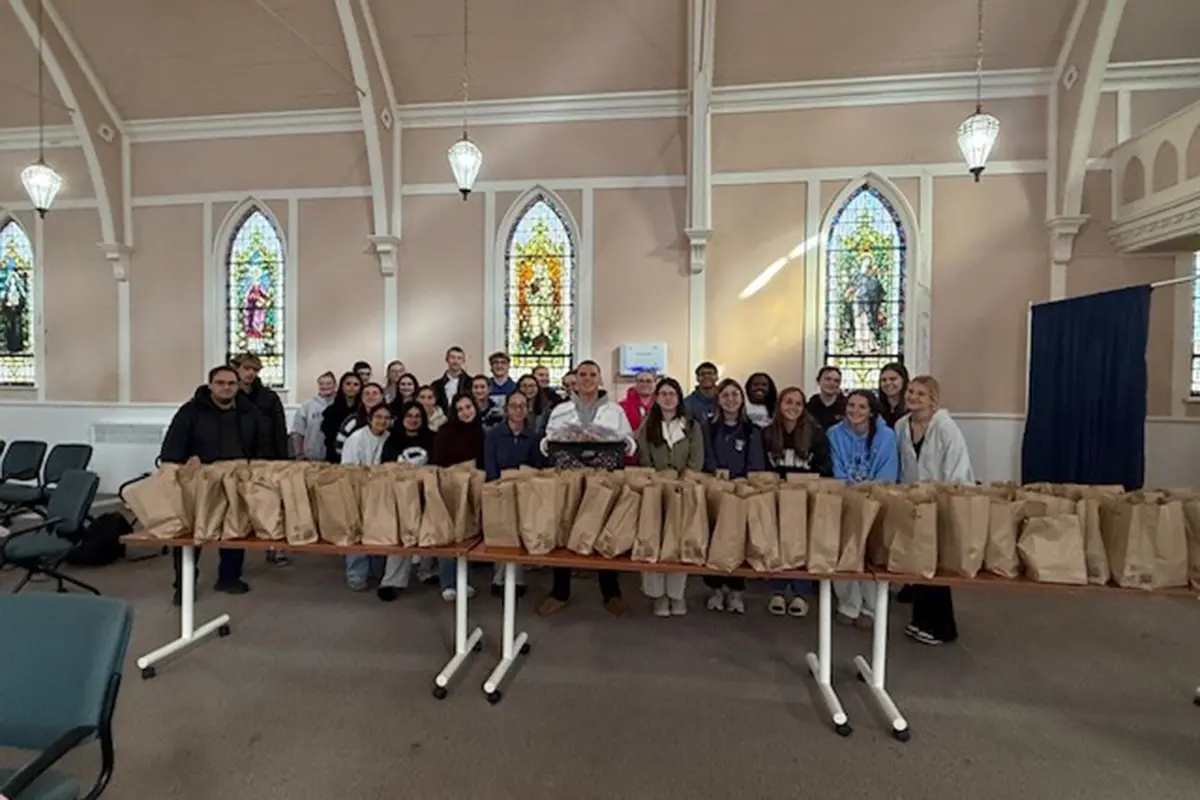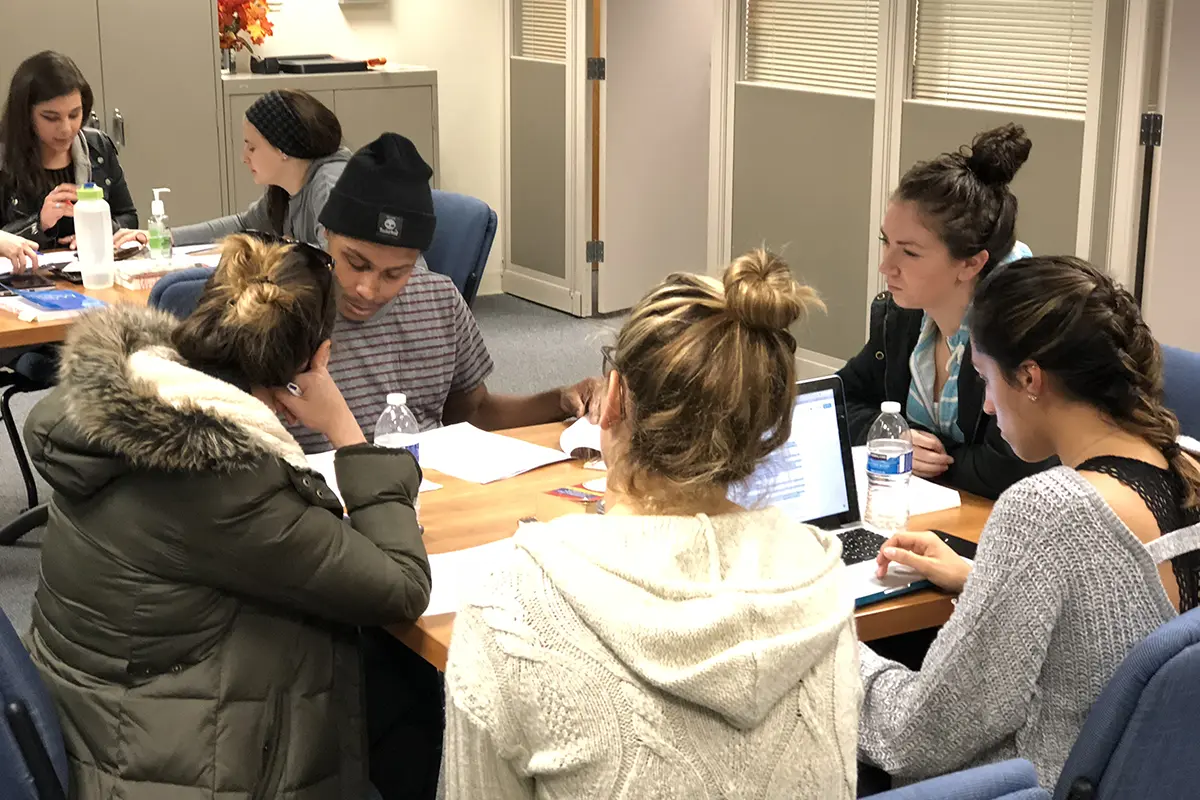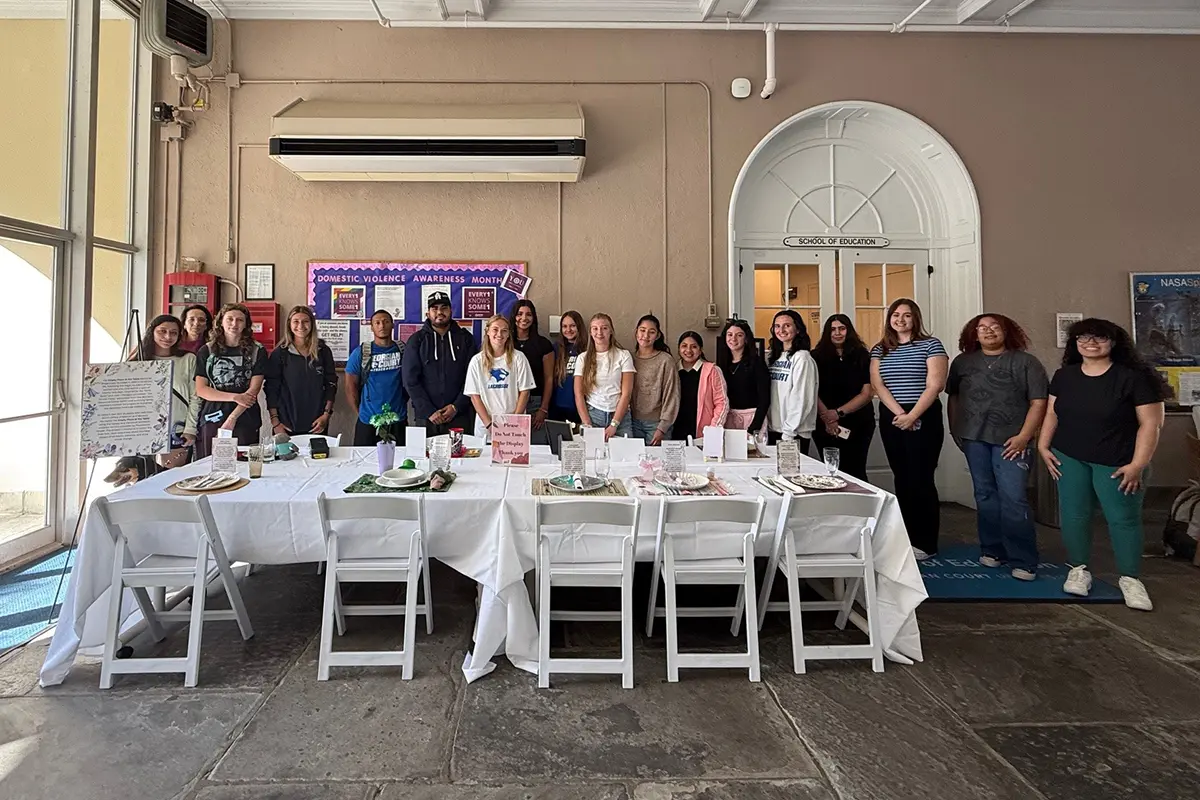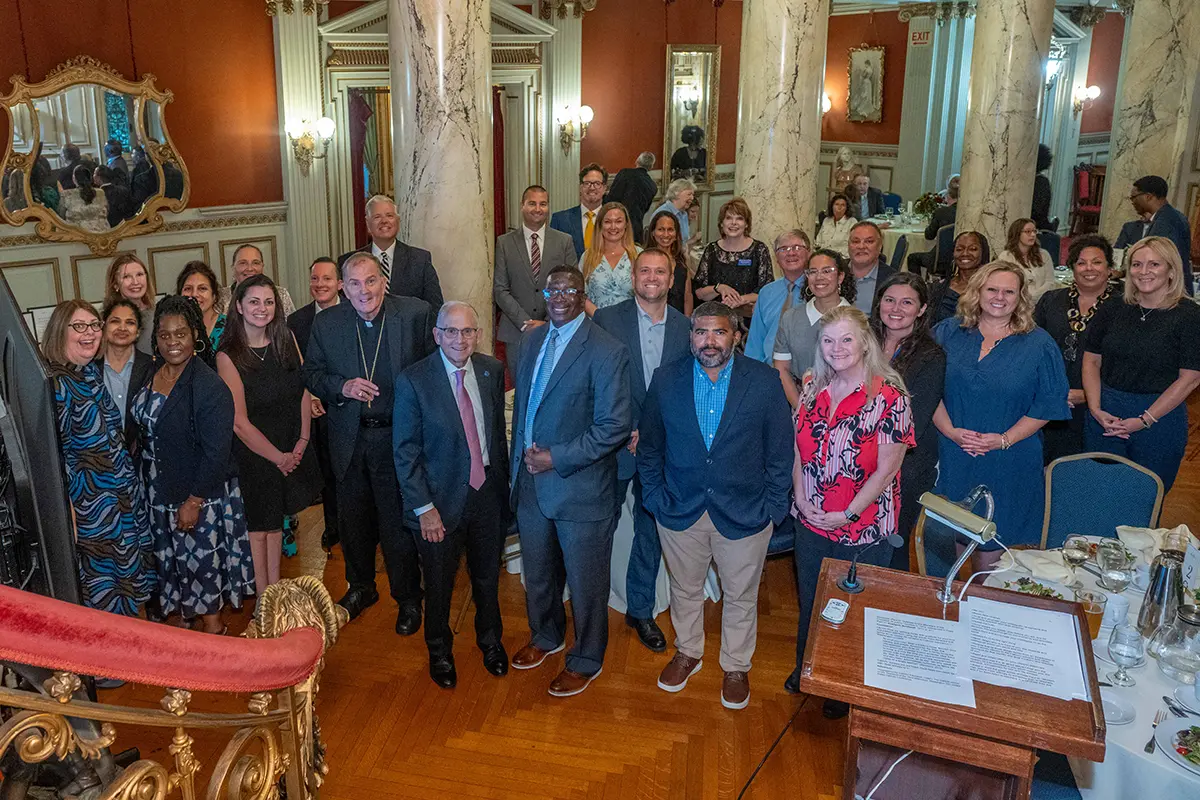Gabriel Rodriguez took the “buffet approach” to choosing a major at Georgian Court University: undecided, chemistry, math—and finally, history. “I did well in all my high school classes, so it was a matter of trying some things and figuring out what fit,” he said. “I enjoy history—studying the past and learning about the experiences of others.”
The Toms River resident earned his bachelor’s degree in 2021 and completes his Master of Arts in Teaching, with special education certification, this spring. As a student teacher at Manchester Township High School, he’s had students with a range of learning abilities, but it’s the most challenging ones he feels called to teach. “I want to do what I can to reach special education students and those with difficult home lives,” he said. “How do I do that? I need to try.”
Gabriel will have a menu of classroom lessons to draw from as president of GCU’s History Club, including a cooking demonstration. He made bannock, a simple fried bread recipe of an indigenous Canadian population living off rations at a reservation. “It was the food they were forced to have, not what they wanted to have,” said Gabriel.
“I love to cook—I got that from my parents—and there’s a natural intersection between food and history I find fascinating, ” he said. “If you take a step back and trace the origins of what you’re eating, there’s a lot of hidden history.” In addition to his cooking chops, Gabriel is known for his student leadership and classroom achievements, including Phi Alpha Theta, the history honor society.
Gabriel has all the makings of a teacher students remember years after they leave the classroom. “I want my students to be prepared for whatever they’re going to do in the world,” he says. “I know that everybody’s not going to read or write or behave the way I do. There are, however, skills we all need in life, and I hope they find them in my classroom.”
This story is one in a series of feature stories focused on the Class of 2022. Story contributed by freelance writer Sheila Noonan. Photo by Joshua Tinto ’20, ’22.

